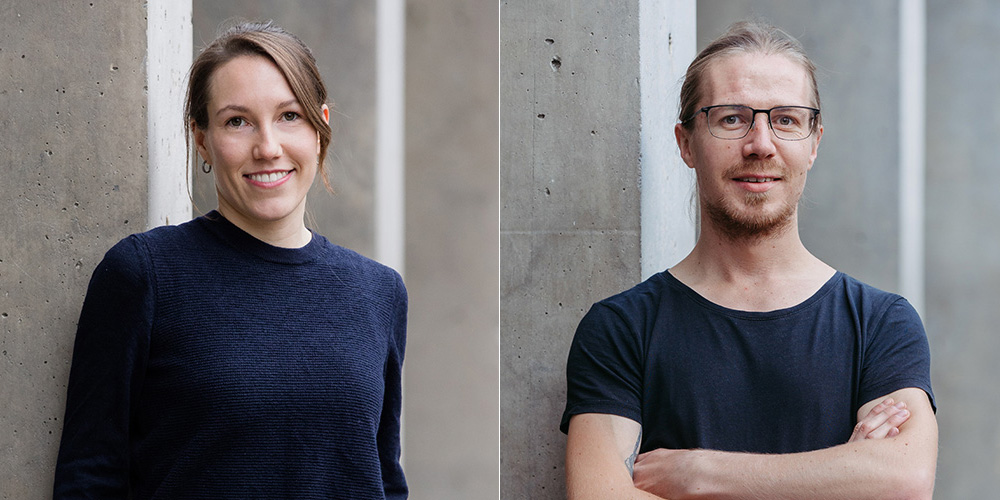Award for “transcriptiones” digital history project
The online platform “transcriptiones”, developed at the University of Basel, has won the Swiss Reproducibility Award 2024 in the team award category. The platform enables researchers to share painstakingly prepared transcriptions.
20 June 2024
Historical research often uses handwritten sources such as letters and documents, which take a long time to transcribe. Yet these transcriptions are rarely published, which means that the same sources are repeatedly re-transcribed.
In 2019, Yvonne Fuchs and Dominic Weber, who were master’s students at the University of Basel at the time, wanted to make transcriptions of historical manuscripts available for teaching, research and other purposes. They developed the idea of a crowdsourcing platform which would collate transcriptions from researchers, students and citizen scientists online and make them available to anyone who wanted to use them.
The idea for the project arose when they were researching for a history seminar paper and discovered that although the sources they were looking at had already been transcribed, they weren’t able to access these transcriptions.
Strengthening collaborations
In 2020, they created a prototype of “transcriptiones” under an Innovator Fellowship at the ETH Library Lab. Thanks to the support of the Voluntary Academic Society of Basel (“Fonds zur Förderung von Lehre und Forschung“) and the Max Geldner-Stiftung, the project underwent further development and finally launched in 2022.
Since 2021, the online platform has been under the direction of Professor Lucas Burkart at the Department of History at the University of Basel and is supported by the Dr. H. A. Vögelin-Bienz-Stiftung. “We are now in the process of initiating and extending our collaboration with archival facilities, and we are also aiming to continuously improve the technical interfaces between the archive catalogs and our platform so that existing transcriptions can be found easier,” says Yvonne Fuchs. This will allow users to locate useful sources previously unknown to them.
Support from the community
The project has already netted the two former Basel students a bronze medal in the 2023 National Open Research Data Prize issued by the Swiss Academies of Arts and Sciences. The platform follows the Wikipedia principle: “Everyone can access existing transcriptions and use them for research, correct errors and upload their own transcriptions – even if it’s just raw data,” explains Dominic Weber. There are no linguistic or geographical restrictions. Around 950 transcriptions can now be found on the platform. “This mass of data is valuable for research and can also be used to train language models,” says Weber.
Swiss Reproducibility Award
The Swiss Reproducibility Award recognizes research findings that meet the highest standards of stringency, transparency and reproducibility, and promote these principles in scientific practice. The prize is awarded by the Swiss National Science Foundation and the Swiss Reproducibility Network in four categories. The team awards, worth CHF 6,000, were presented on 10 June at the Swiss Reproducibility Conference in Zurich.



